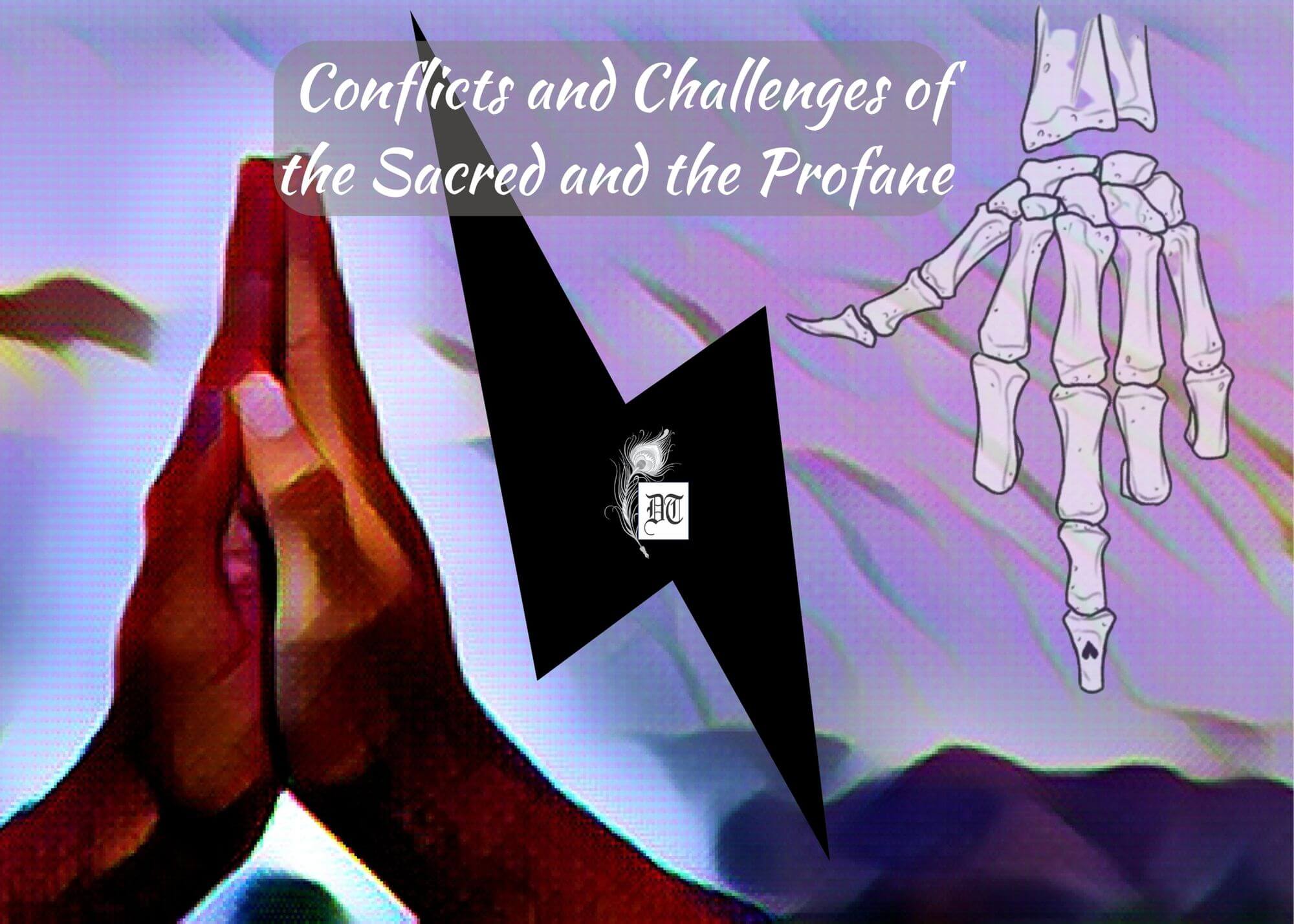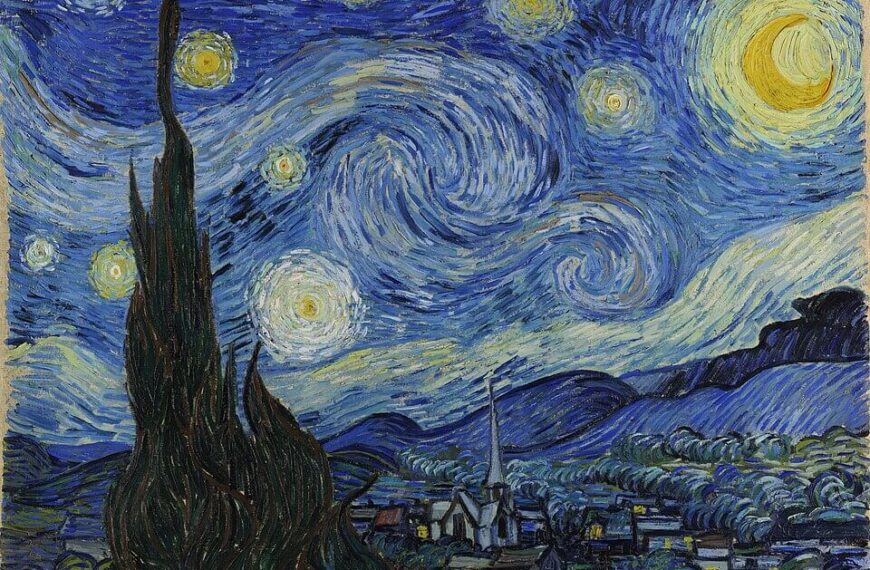Azam explores the complex layers of the sacred and the profane. He traces philosophical meanings, conflicts, and challenges in this eclectic opinion piece – exclusively for Different Truths.
Nineteenth-century French philosopher and ethicist Emile Durkheim, the founder of academic sociology, perceived the distinguishing attribute of religion as sacred and the framework of everyday living as profane.
Chicago University’s celebrated twentieth-century Romanian philosopher, novelist and religious historian, Mircea Eliade, argued that ancient peoples viewed the existence of the world in the domains of sacred and profane spaces.
The sacred and the profane compete under rival leadership, and a well-balanced competition keeps the power of each in check.
The sacred and the profane compete under rival leadership, and a well-balanced competition keeps the power of each in check. Society benefits when mutual respect buffers these spaces, agreed-upon demarcation lines are clear, and communication channels remain open.
The sacred and profane being microcosmically and macrocosmically present in society, encroachment by either causes individual and collective disbalance, feeds conflict and stagnates — or even reverses — human development.
The most visible encroachments are those of politics and religion. Still, there are also semantic intrusions retrieved from sacred space to serve short-term agenda in profane space, which can germinate unintended long-term consequences.
Let’s say religious leadership succeeds in taking over the power in a state.
Just because the leadership’s address is in a sacred neighbourhood does not imbibe it with virtue.
Just because the leadership’s address is in a sacred neighbourhood does not imbibe it with virtue. The leaders are human and salaried professionals whose acts challenge, more than uphold, their claims.
This leadership remains beneficial as long as it does what a clergy is supposed to do, concerning the society it serves and on whose taxes and charity it thrives. Seminaries and work experience fit them out for their professional careers.
When they move house, they’re out of their depth and below their competency in governance, diluting its effectiveness for its recipients, who happen to be their core employers. Consequently, the quality of governance started decreasing, which is what happened in Iran after the clergy’s takeover.
Corruption, or at least the mitigation of virtue, is a trademark of politics.
Politicians manage the profane space. Politics functions within its result-based deontology, whereas the sacred requires the means to justify the end. Corruption, or at least the mitigation of virtue, is a trademark of politics.
So, when the clergy start running a country, irrespective of their moral hygiene in their own space, they start making compromises with the profane, which soon degenerates into outright corruption. And as Lord Acton (1834-1902) wrote to Bishop Creighton: “Power tends to corrupt, and absolute power corrupts absolutely.” So, a priest-ruled society finds itself enduring a tainted clergy and suffering under incompetent governance, which starts eroding its moral and political health.
Then there is the case of politicians defiling sacred space with varying intensity.
The Islamic Republic of Pakistan … is struggling to balance the theocratic, the democratic and the authoritarian.
There is the outright political takeover, as in China, with its state-anointed Bishops, Muftis, and the farcical Panchen Lama. Another version is the Islamic Republic of Pakistan, which struggles to balance the theocratic, the democratic and the authoritarian. And, not least, Saudi Arabia’s velvet-gloved relationship between an absolute monarchy and the clergy as a junior partner.
A religious lobby may also succeed in inserting its candidate within the democratic process to gain power and be able to legislate its doctrinal interpretation. Turkey is one such case: President Recep Tayyip Erdogan is reportedly a member of the Community of İskenderpaşa, a Turkish Sufistic community of the Naqshbandi tariqah.
“Dr Ahmet Yayla, Assistant Professor at DeSales University, has said that Turkish President Recep Tayyip Erdoğan slowly established his rule in the country by shifting moderate Turkish Sufi Islam, based on teachings of Rumi, towards a Salafi Islam – the political Islam.”[1]
“Turkish political Islam and, with it, Turkish politics, is increasingly based on powerful religious orders and brotherhoods, collectively termed tariqat and cemaat, respectively. These communities … stem from the Khalidi branch of the Naqshbandi Sufi order. While they differ from one another in interpretation and tone, the Naqshbandi-Khalidi groups have formed Turkish political Islam …”[2]
The sacred and profane pecking at each other’s flesh creates hybrid governance in a lose-lose situation…
The sacred and profane pecking at each other’s flesh creates hybrid governance in a lose-lose situation that distresses the helpless citizenry.
The litmus test of good governance should be for citizens to publicly challenge each new measure with the question: How will this improve their positioning on the human development index?
Now to semantic intrusions from sacred to profane space and their unintended consequences.
Religion is spiritual, internal, and sacred — or at least thought to be so, though the last may often become public. Dragging religious words from their home turf into the service of profane space is a faith community’s disservice to itself.
The rise of nation-states rendered the word Christendom irrelevant after the 1789 French revolution…
The rise of nation-states rendered the word Christendom irrelevant after the 1789 French revolution and the demise of the Holy Roman Empire in 1806. It used to prefix profane accomplishments of western, Christian-majority nations who had subsumed their national and historical identities within a supra-national religious appellation overseen by a politically savvy prelate. The rise of secular democracy mothballed the term and rendered it meaningless.
The use of the prefix Christian is now restricted to events and objects lounging unharmed in sacred space, but that is not yet the case elsewhere.
Even before the post-Christendom period, Muslim-majority nations were referred to either by their historical, ethnic and cultural identities or by the dynastic name of the caliphate they found themselves under Rashidun, Omayyad, Abbasid, Mameluke, Fatimid, Almohad Ayyubid and lesser-known families. The Turkish Caliphate was often called the Ottoman Empire, just like the Mughals (16th to 19th century) and Iran’s seven Muslim dynasties (1501 to 1979).
The Times first documented the term “Muslim world” in 1912, describing Pan-Islamism as a powerful, cohesive movement born in Paris where Turks, Arabs and Iranians congregated. [3]
‘Muslim’ then began to be increasingly replaced by ‘Islam’, shifting focus on the faith, not its adherents.
‘Muslim’ then began to be increasingly replaced by ‘Islam’, shifting focus on the faith, not its adherents.
“Islamic world, also called Islamdom, the complex of societies and cultures in which Muslims and their faith have been prevalent and socially dominant.”[4]
The post-colonial period sought to compensate colonised peoples and forge partnerships with the newly independent Muslim-majority nations. The prefix Islamic to past accomplishments of Muslims in science and the humanities was a public acknowledgement of their bygone achievements and transnational status. It allowed a Uighur to take pride in the accomplishments of a Turk or a Pakistani in those of an Arab. And the achievements of the Syrian caliphate in Granada were, and still are, claimed by one and all, superannuating nationality, ethnicity or culture.
Islam is the belief system held sacred by nearly two billion people. Retrieved from its sacred habitat and used as an identifier of worldly accomplishments, it establishes an implicit cause-and-effect relationship between a belief system and its adherents’ achievements. The practice also amalgamates the scientific and artistic highlights of Muslim-majority states into a transnational religious identity over the ground reality of a nation.
…the 70s saw the rise of splinter factions among Muslims, claiming exclusivity, resorting to violence to ensure the singularity of their religious perception…
Then, the 70s saw the rise of splinter factions among Muslims, claiming exclusivity, resorting to violence to ensure the singularity of their religious perception, and rejecting mainstream Muslims as heretics. They loudly proclaimed themselves as the only true Muslims, and their acts were Islamic.
Non-Muslims lacked the theological and ecclesiastical authority to refuse their claims, and the attribute Islamic, in widespread usage, had been put at their disposal.
So, it preceded ‘terrorist’ when considered applicable.
While mainstream Muslims objected to the attribute, the radical groups welcomed it but objected to the label ‘terrorist.’
Indiscriminately proliferating this term in profane space had overworked it to the detriment of ethnic and national identities. Its ubiquity means that, by extension, if a Muslim’s achievements are ‘Islamic,’ so are their failures. The 1492 Conquest of Granada may be called an Islamic — rather than Arab — victory, and the 732 Battle of Poitiers an Arab — or Islamic — defeat. Thus, it is that, without any premeditated intention to slander Muslims or their religion, the term Islamic — or now Islamist — terrorism started circulating and continues to do so. The prefix moved house by its owners’ volition, from sacred to profane space, in broad daylight, under the scrutiny of all and sundry, tempting applause — or criticism.
Unable to enforce the decoupling of this religious prefix’s negative and positive uses, the term Islamophobia extended its brief to act as a counterforce.
Writing in The European Academy of Religion and Society, Timo Pietrus refers to Gilles Kepel, a French political scientist, focused on the Middle East and Islam in the West: “the Muslim Brotherhood first popularised the term: an Islamist organisation that seeks to create a state that is governed by Islamic law … they publicised the term as an attempt to criminalise any criticism of their religious and political beliefs by implicitly comparing it to antisemitism. … Abdur-Rahman Muhammad, a former Islamist, claims he was present at the meeting where members of the International Institute for Islamic Thought (IIIT) decided to ‘emulate the homosexual activists who used the term ‘homophobia’ to silence critics.’[5]
The term Islamophobia started life in France as Islamophobie, in Alain Quellian’s 1910 thesis…
The term Islamophobia started life in France as Islamophobie, in Alain Quellian’s 1910 thesis, as a heading to study prejudice against Islam. It found its way into English shortly after that, but in proportion to the media interest in Muslims until the Second World War, it lay largely dormant. By the end of the ‘70s, it woke up from its slumber and gained speed.
The effort to restrict the attribute to positive use has been checkmated by the violence practiced by exclusive claimants to Muslim-hood such as ISIS, Taliban, Al-Shabab and others. The semantic flip from Islamic to ‘Islamist,’ or substituting Muslim for Islamic, is transparently ineffective.
Although it might have been more potent to replace the religious prefix with national prefixes, the habit of proclaiming the faith in worldly accomplishments, or justifying its primacy through worldly achievements, persists, as in the two headlines below.
BBC, June 8, 2022 “Why Marvel has struck gold with Muslim superhero, Ms Marvel.”[6]
Arab News, November 15, 2022 “11-year-old British Muslim boy outscores IQ of Einstein, Hawking.”[7]
In both cases, had the personalities been non-Muslim, their religion would have been considered irrelevant — Iman Vellani would have been Canadian and Yusuf Shah British, with perhaps a mention of their ancestry in the body of the article.
Dragging the sacred into the profane risks exposing it to profanities and diluting the sacredness.
Dragging the sacred into the profane risks exposing it to profanities and diluting the sacredness.
It may be for lofty reasons or expediency, but eventually, such decisions take their toll. The Sacred and the Profane are restless bedfellows, and manoeuvring them for short-term benefits generously adds to the long-term bill, whether it be for governance, language, or relationships.
[1] Zee News July 23, 2020, https://zeenews.india.com/world/explained-how-president-erdo-an-established-his-rule-in-turkey-by-shifting-moderate-turkish-sufi-islam-2297663.html
[2] Hudson Institute, September 3 2015, https://www.hudson.org/national-security-defense/the-naqshbandi-khalidi-order-and-political-islam-in-turkey
[3] Pan-Islamism In India, FROM A CORRESPONDENT IN INDIA, Tuesday, September 3 1912, The Times, Issue: 39994
[4] Britannica
[5] The European Academy of Religion and Society. Islamophobia – The origins of a confusing concept, October 23 2020, footnote 3 “Kepel, Gilles, and Antoine Jardin. Terror in France: The Rise of Jihad in the West. Princeton Studies in Muslim Politics. Princeton, New Jersey: Princeton University Press, 2017. p. 17.
[6] https://www.bbc.com/culture/article/20220607-why-marvel-has-struck-gold-with-muslim-superhero-ms-marvel
[7] https://www.arabnews.com/node/2199026/offbeat

Picture design by Anumita Roy





 By
By
 By
By
 By
By
 By
By
Superb picture designed by Ms. Anumita Roy!
Thank you.
A very engaging write up relevant to the present times. The domains of the sacred and profane tend to overlap in many ways; especially in the very trajectory of religious thought and practice. And this is true of every religion. Even the distinction we make between religion and spirituality is very tenuous and hence unsustainable.